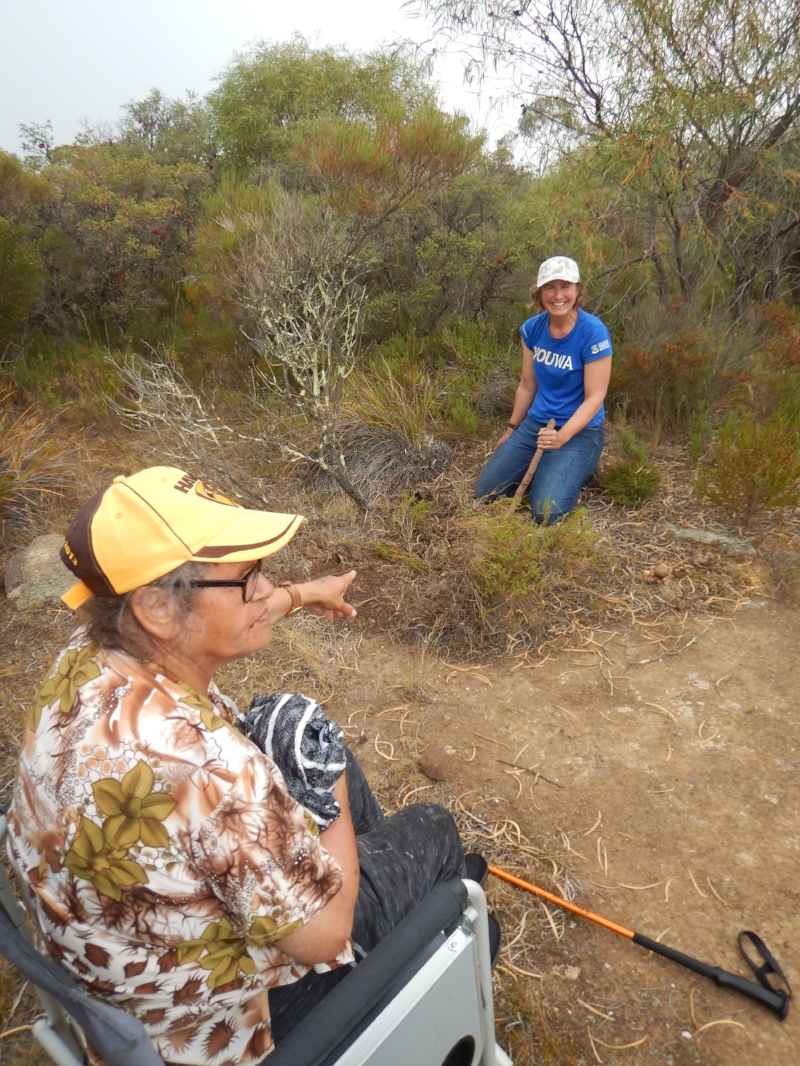by Alison Lullfitz
Alison is a Research Associate with Collecting the West. Here she shares with us her PhD research in WA’s Great Southern region.
Can you tell us about your research please Alison?
Aunty Lynette Knapp giving instructions to Alison harvesting youaq (Platysace deflexa) near Ravensthorpe, WA.
Photo credit: Steve Hopper.
My research focuses on relationships between the Noongar, south west Australia’s First People, and the plants of this internationally recognised biodiversity hotspot. I have worked collaboratively with contemporary Noongar traditional owners, archaeologists and other botanists to examine vegetation responses to Noongar land management practices at a landscape level down to plant DNA level. Particular Noongar plant groups of interest have been the Platysace (youaq) and Macrozamia (djeeljiri).
How have you approached your research?
Two-way collaboration with traditional owners such as Aunty Lynette Knapp (pictured) has been critical to my research. Her insights on plant husbandry based on her own family’s practice have been invaluable, as have the insights of others to understand past human roles in contemporary plant distributions and ecological aspects of traditional Noongar practices. Experiences shared on country have resulted in a deeper interpretation of our findings than could have been possible without collaboration.
How do you see this work being used?
My research highlights the depth of Noongar influence on the plants and ecosystems of south western Australia – an influence that has been present for tens of thousands of years. Like many PhDs I’m sure, it asks more questions than it answers, however I hope the presented learnings can inform contemporary biodiversity conservation in Noongar boodja (south western Australia), support a shared approach to caring for country, and provide some avenues for future research.
And the highlight?
The highlight for me has been the many opportunities to observe and share in intergenerational and cross-cultural learning on boodja with traditional owner families. It is a privilege to share families’ time on country together.
Thanks Alison!
More on Alison’s research in a recently published article here:

